Directions (1-5): Read the following information carefully to answer the given questions.
Eight persons C, D, E, F, K, L, M and N are seated in a straight line, but not necessarily in the same order. Some of them are facing north while some are facing south. Each of them has different number of coins starting from 1 to 8.
Only one person sits to the left of K who has three coins. E sits third to the right of K. C who has seven coins, sits second to the left of E. C is not an immediate neighbour of K. Both the immediate neighbours of D face south. E has the same number of coins as the number of persons sitting to the right of E. F who has one coin sits third to the right of N. Both the immediate neighbours of C face north. L has two more coins than M. The immediate neighbours of K face opposite directions (i.e., if one neighbour faces north then the other faces south and vice versa.). C faces a direction opposite that of E. L is not an immediate neighbour of E. D has only two coins. M has twice the number of coins of the immediate neighbour of N.
Q1. How many persons are sitting to the right of E?
(a) Four
(b) Two
(c) Three
(d) One
(e) None of these.
Q2. Who among the following sits second to the right of L?
(a) C
(b) N
(c) E
(d) M
(e) No one
Q3. What is the sum of the coins of all the persons who are facing south?
(a) 10
(b) 12
(c) 16
(d) 15
(e) None of these
Q4. Who among the following represent the persons who are sitting at the extreme ends of the line?
(a) L, N
(b) L, M
(c) F, M
(d) M, N
(e) F, N
Q5. How many persons sit between K and the person who has second highest number of coins?
(a) Four
(b) Three
(c) More than four
(d) Two
(e) One
Directions (6-10): In the following questions, the symbols @, $, *, # and δ used with the following meaning as illustrated below:
‘P $ Q’ means ‘P is not smaller than Q’
‘P@Q’ means ‘P is neither smaller than nor equal to Q’
‘P # Q’ means ‘P is neither greater than nor equal to Q’
‘P δ Q means “P is neither greater than nor smaller than Q’
‘P *Q’ means ‘P is not greater than Q’
Now, in each of the following questions assuming the given statements to be true, find which of the four conclusions I, II, III and IV is/are definitely true and give your answer accordingly.
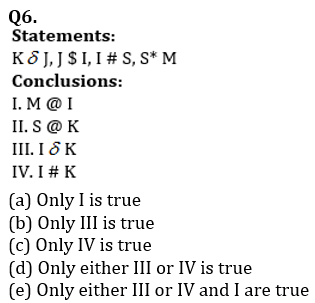
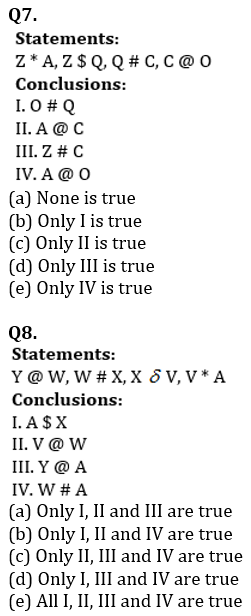
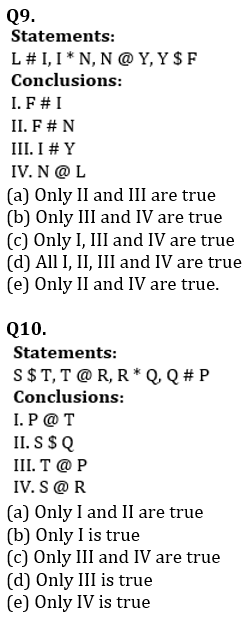
Direction (11-15): Study the following information carefully and answer the questions given below:
Six Cars i.e. A, B, C, D, E, F are standing in a row facing north at a distance which is a successive multiple of 4 in an increasing order from the left. Only two Cars are standing between B and C. Only two cars stand between the car which is standing Second to the right of car B and F. Car A stand next to E. Only two cars stand between Car E and D, which does not stand next to C. Total distance between the Car B and Car A is 36. Now, Car E is moving towards North direction and after going 10m, it turns to right and goes 18m. Then, it takes left turn and goes 10m and reach to point M. Car F is moving towards South direction and after going 15m it takes right turn and goes 8m to reach point K. Car A is moving towards south and after moving 15m it takes right turn and goes 40m to reach at point X.
Q11. What is the shortest distance between Car F and point X?
(a) 8m
(b) 21m
(c) 17m
(d) 24m
(e) None of these
Q12. In which direction point A is with respect to point M?
(a) North-west
(b) North
(c) South-east
(d) South
(e) None of these
Q13. What is the total distance between Car D and Car E?
(a) 24m
(b) 16m
(c) 40m
(d) 32m
(e) None of these
Q14. In which direction and at what distance point K is with respect to Car X?
(a) 16m east
(b) 16m west
(c) 12m North
(d) 8m South
(e) None of these
Q15. If Car B moves 18m in South to reach point Y, then what is the shortest distance between point Y and point X?
(a) √32m
(b) 6m
(c) 4m
(d) 5m
(e) None of these
Solutions
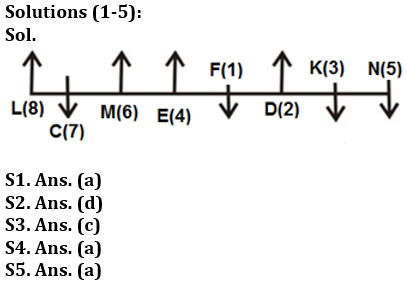
Solutions (6-10):
S6. Ans. (e)
S7. Ans. (a)
S8. Ans. (b)
S9. Ans. (e)
S10. Ans. (e)
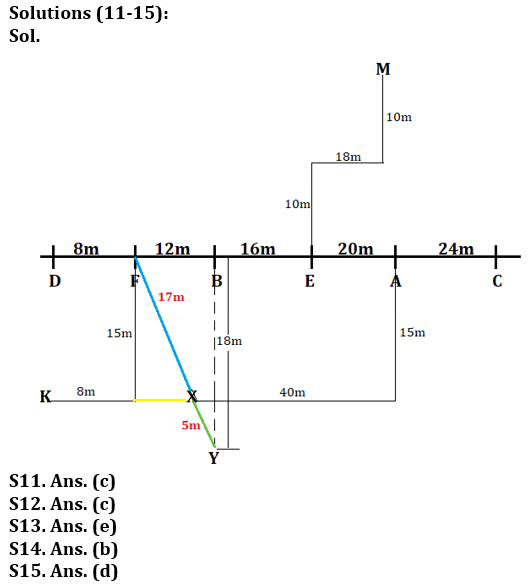
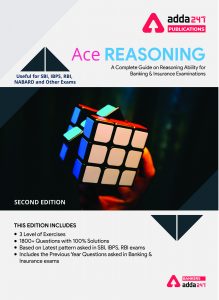


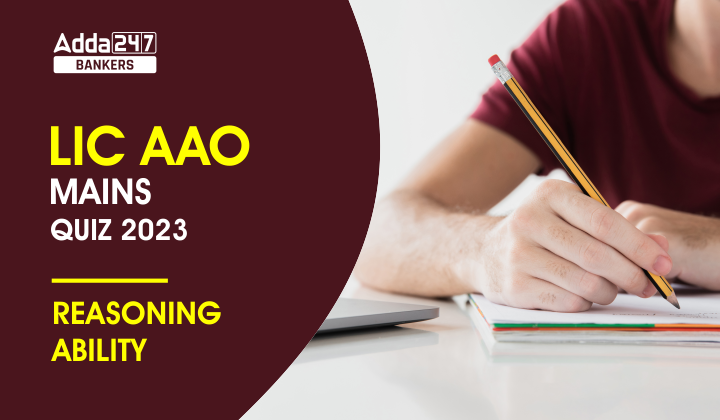

 GA Capsule for SBI Clerk Mains 2025, Dow...
GA Capsule for SBI Clerk Mains 2025, Dow...
 The Hindu Review October 2022: Download ...
The Hindu Review October 2022: Download ...
 SBI Clerk Prelims Result 2025 Out, Direc...
SBI Clerk Prelims Result 2025 Out, Direc...







